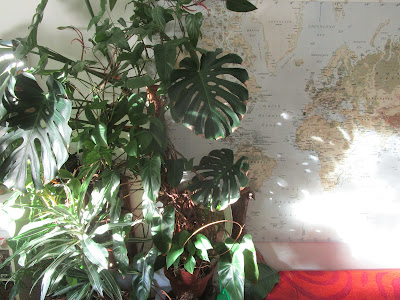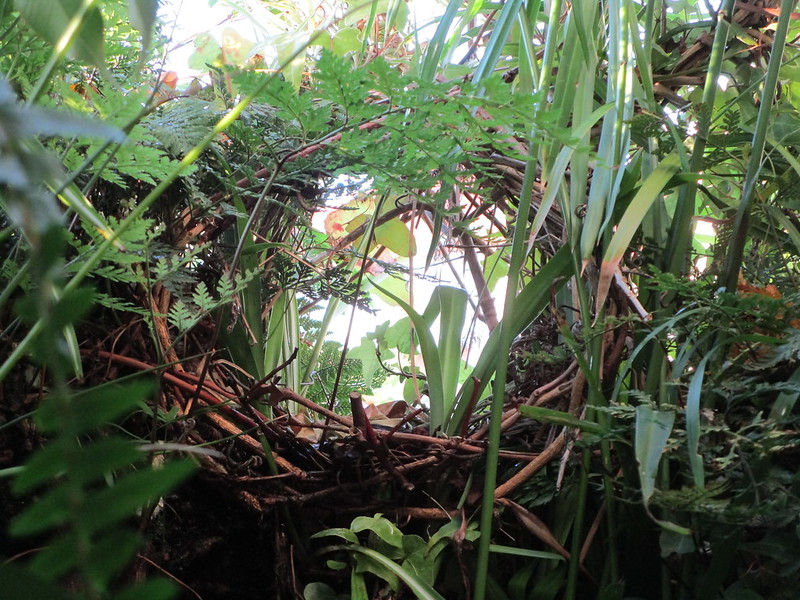"Only by altering our habits, and by endeavouring to live less exploitatively, can we prevent the changes to the environment from becoming an unparalleled catastrophe, another Great Dying. (...) People are understandably worried that it might lower our quality of life in the short term, and involve some personal and societal effort." Yet, "without our action at the level of community, of the nation, of the globe, we will certainly suffer even more. (...) we must enter into a more mutualistic relationship with our global environment. Only then can we preserve not just their infinite variety, but also our place within them" and "we too will live in hope." Thomas Halliday (2022). Otherlands: A World in the Making. Photos by Monica Pinheiro free to use if you respect the license CC BY-NC-SA ( CC ).

"More than conversation at the interface, it is creative assemblages like these that explore and elaborate the particular dynamic capacities that digital media afford and the ways that through them humans and machines can perform interesting new effects (...) in uniquely particular ways." Lucy Suchman (2009). Human-machine reconfigurations: plans and situated actions.
Dec 21, 2022
December
Oct 13, 2022
Foodscapes
Feb 4, 2022
February
Aug 28, 2021
all shades of green
Between «all or nothing» there are thousands of green variations. Green washing, like inaction, is not green. Its a waste of time and resources that could be applied in more green. None of us can do everything, but each of us can do a lot of green different things. And we need more of these different green things to get the Planet back on track. To sustain all life. Our life, also. We must carry on with green and keep on doing whatever more green we can do. Reducing what we can reduce. Reusing, recycling, composting, gardening, planting, trying some veggies of your own, offering plants, and seeds. Slowing down consumption. Exchanging surplus and ideas with neighbours, family, friends, colleagues. All shades of green are beautiful, fun, healthy, fair and good for the environment.
Image by Monica Pinheiro, license CC BY-NC-SA ( CC )
Aug 25, 2021
Adaptation
Aug 24, 2021
August
Jul 30, 2021
July
Mar 18, 2021
March
"Halting land transformation and degradation could contribute 6.6 (range 2–11) GtCO2e per year to greenhouse gas emission reductions between 2020 and 2050, and land restoration-related activities could contribute a further 18.6 (range 1.8–35.5) GtCO2e per year over the same period, while simultaneously restoring ecological function and ecosystem services, and in some cases, biodiversity" p.73, United Nations Environment Programme (2021). Making Peace with Nature: A scientific blueprint to tackle the climate, biodiversity and pollution emergencies. Image by Monica Pinheiro, license CC BY-NC-SA (CC).
Mar 15, 2021
March
“(…) the analysis suggests that NCS [Natural Climate Solutions] have the potential to limit the pace of climate change significantly, delivering up to one-third of net emission reductions required by 2030. But what makes investments in nature especially attractive if done well is the enormous and varied array of “co-benefits” that can arise alongside directly addressing the biodiversity and climate crises – benefits that accrue to nature and to communities.” World Economic Forum (2021). Consultation: Nature and Net Zero.
Mar 2, 2021
March
"Achieving transformative change requires that the fundamental drivers of overconsumption are addressed, through changes in personal values, norms, economic and social operating rules, technologies and regulations. Given the interconnected nature of climate change, loss of biodiversity, land degradation, and air and water pollution, it is essential that these problems are tackled together urgently." (p. 107) United Nations Environment Programme (2021). Making Peace with Nature: A scientific blueprint to tackle the climate, biodiversity and pollution emergencies.


















